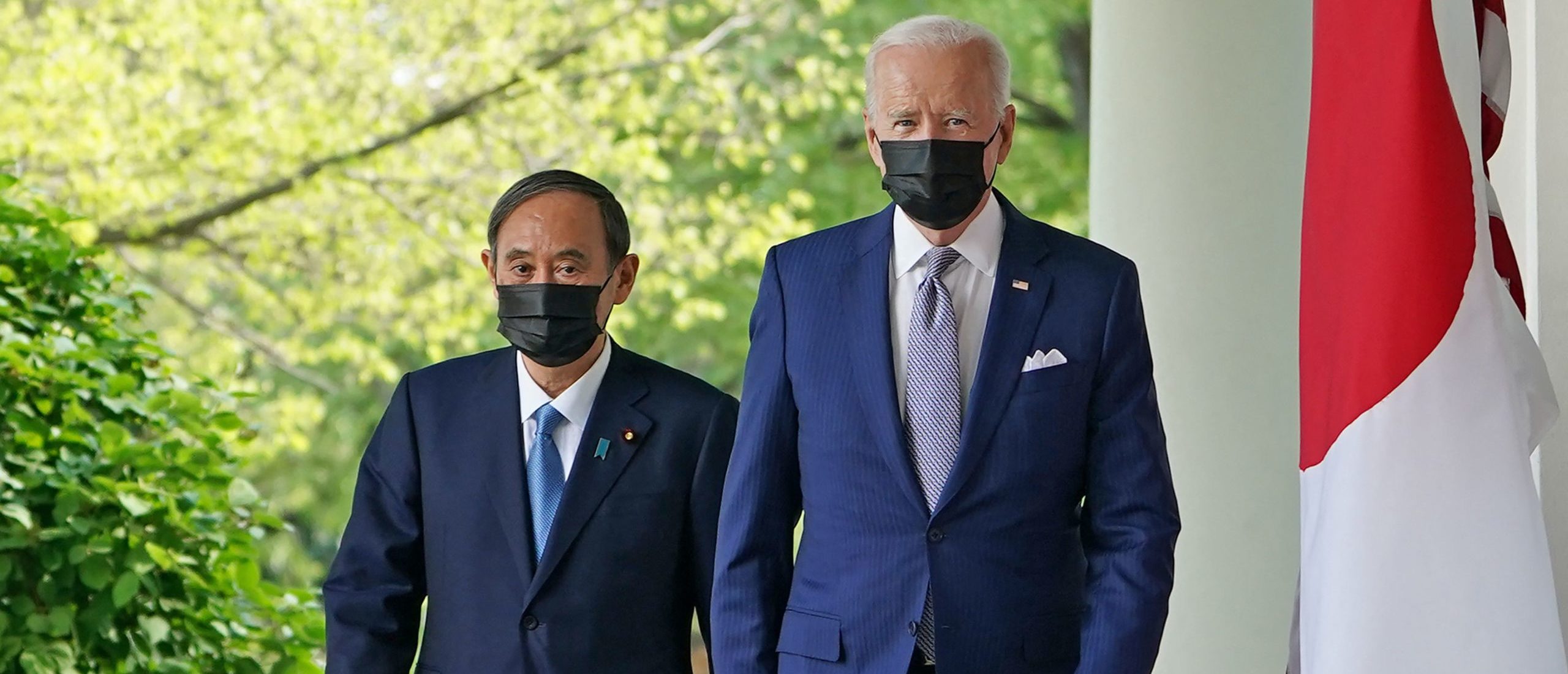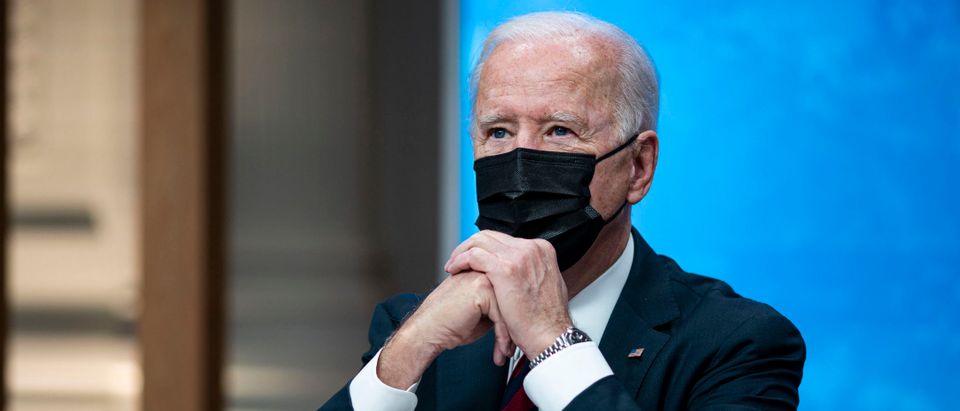President Joe Biden will welcome Korean President Moon Jae-in for an in-person meeting at the White House on May 21 in yet another message to China that the U.S. is serious about maintaining influence in Asia.
The White House announced Moon’s visit Thursday and it will come weeks after Biden’s first visit from a head of state on April 16, Japanese Prime Minister Yoshihide Suga. While Biden has held calls and virtual meetings with Canada and many other allies, he has yet to meet in-person with any Western world leaders. (RELATED: Biden, Japanese PM Suga Announce ‘New Competitive And Reliance Partnership’ To Counter China)
“President Biden looks forward to welcoming Republic of Korea President Moon Jae-in to the White House on May 21, 2021. President Moon’s visit will highlight the ironclad alliance between the United States and the Republic of Korea, and the broad and deep ties between our governments, people, and economies,” White House Press Secretary Jen Psaki said in a statement Thursday night. “President Biden looks forward to working with President Moon to further strengthen our alliance and expand our close cooperation.”

US President Joe Biden and Japan’s Prime Minister Yoshihide Suga walk through the Colonnade to take part in a joint press conference in the Rose Garden of the White House in Washington, DC on April 16, 2021. (Photo by MANDEL NGAN/AFP via Getty Images)
Biden and Secretary of State Tony Blinken have signaled that competing with China on the global stage is the top priority for the administration’s foreign policy. Biden has framed the struggle between the U.S. and China as one that will determine whether democracy or autocracy will lead the world into the future.
BIDEN: “I have known Xi Jinping a long time. Allegedly, by the time I left office as Vice President I had spent more time with Xi Jinping than any other world leader…he is a smart, smart guy.” pic.twitter.com/f4bun3MDXQ
— Danny De Urbina (@dannydeurbina) March 25, 2021
Blinken has said the administration’s strategy centers on mobilizing U.S. allies in the region to combat China economically. Biden reinvigorated the Quad alliance soon after gaining office, which includes the U.S., Japan, Australia, and India. While officials have warned that the groups is “not the new NATO,” the group will coordinate economically and militarily to thwart China’s aggression in Asia as well as its human rights abuses in Hong Kong and Xinjiang.
“The more China hears not just our opprobrium, but a chorus of opprobrium from around the world, the better the chance that we’ll get some changes,” Blinken told Congress in March. “It would be very important if China claims that there is nothing going on that it give access to the international community, to the United Nations. If they have nothing to hide, show it to us. Show the world.”


